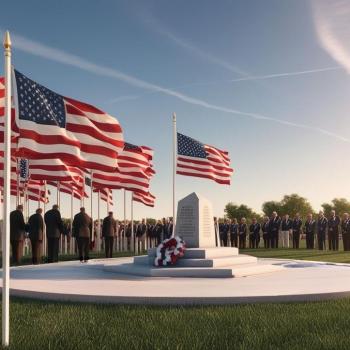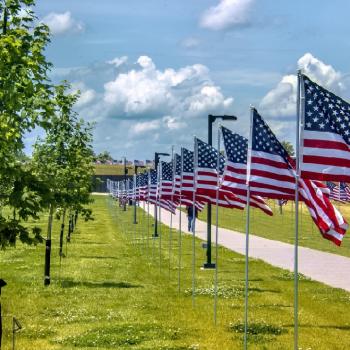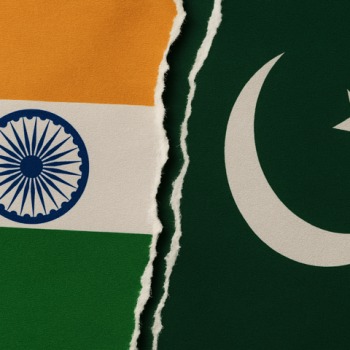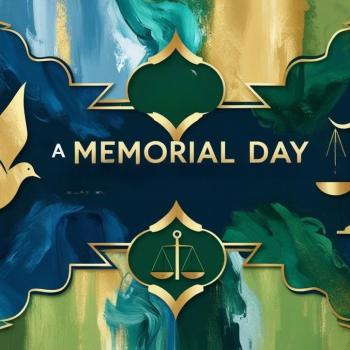by Qasim Rashid
Hurricane Harvey has left Houston devastated, and Hurricane Irma—currently a Category 3 Hurricane somewhere in the Atlantic—could strike the east coast of the United States by the weekend. By some estimates it could escalate to a Category 5 Hurricane.
Natural disasters such as floods, plagues, volcanic eruptions, and earthquakes have long served as a mark of Divine wrath. Numerous holy scriptures refer to various forms of natural 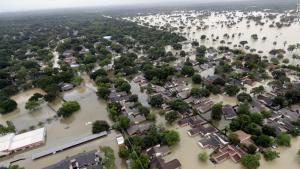 disasters as reminders of God’s wrath on those people who persecuted prophets, committed injustice, or exhibited a disregard for Divine command.
disasters as reminders of God’s wrath on those people who persecuted prophets, committed injustice, or exhibited a disregard for Divine command.
But while some are quick to blame Hurricane Harvey on some sin committed by humanity, the reality is more nuanced. Such blanket statements after the fact are as meaningless as predicting lottery numbers the day after a winner is announced. As limited human beings we cannot always discern God’s ways. However, that does not mean we can arbitrarily attribute whatever we desire to God and claim “God works in mysterious ways.”
Regardless of faith, there’s a critical lesson to take from this deluge of natural disasters. Love is better than hate. And perhaps, the unprecedented amount of rain and water has given us the chance to wash away the vitriol and the venom the country was spouting. In place of that divisiveness and hatred emerge powerful stories of people of different faiths, races, and classes uniting for the common causes of humanity.
Through the devastation we learn to respond with action and with prayers. We seek God’s mercy and protection from future harm, and move forward seeking forgiveness and reconciliation. There’s perhaps no greater definition of an American as one who strives to relentlessly “create a more perfect union.” That perfection is not a destination, but a journey. This journey does not ignore the diversity in one another and superficially and detrimentally claim “I don’t see color.” Nor does this journey claim religion isn’t important and politics don’t matter.
Instead, this is a journey in which we appreciate the diversity of our nation, learn about one another’s religion for the sake of improving ourselves, and engage in politics for the sake of civilized discourse to make our country more perfect. In a recent lecture broadcast internationally, His Holiness the Khalifa of Islam Mirza Masroor Ahmad remarked, “We must always remember that if we seek to pursue our own interests at all costs, the rights of others will be usurped and this can only lead to conflict, wars, and misery. We must all reflect and understand the precipice upon which we stand. We must recognize the purpose of our creation.
That purpose is to serve God in our private worship and serve humanity in our public service. As people of faith, one cannot be considered complete without the other. And perhaps most importantly, that service cannot be limited to race, color, creed, or any other differentiating factor. That service must truly be for all humanity, or it is a service only for pomp and show. Just recently in Germany the Khalifa of Islam reminded nearly 1000 non-Muslim guests that “Islam proclaims that all people are born equal, no matter where they hail from or the color of their skin.”
In that respect, when we suffer a calamity like Hurricane Harvey, it impacts us all. We all have the same needs of food, water, clothing, and shelter. Despite our differences, it is high time we recognized this foundational fact of humanity.
We may not be able to predict natural disasters, or respond in a way that can undo the harm they cause. But, we can control our own response, and ensure it is one of building bridges—literally and figuratively.



